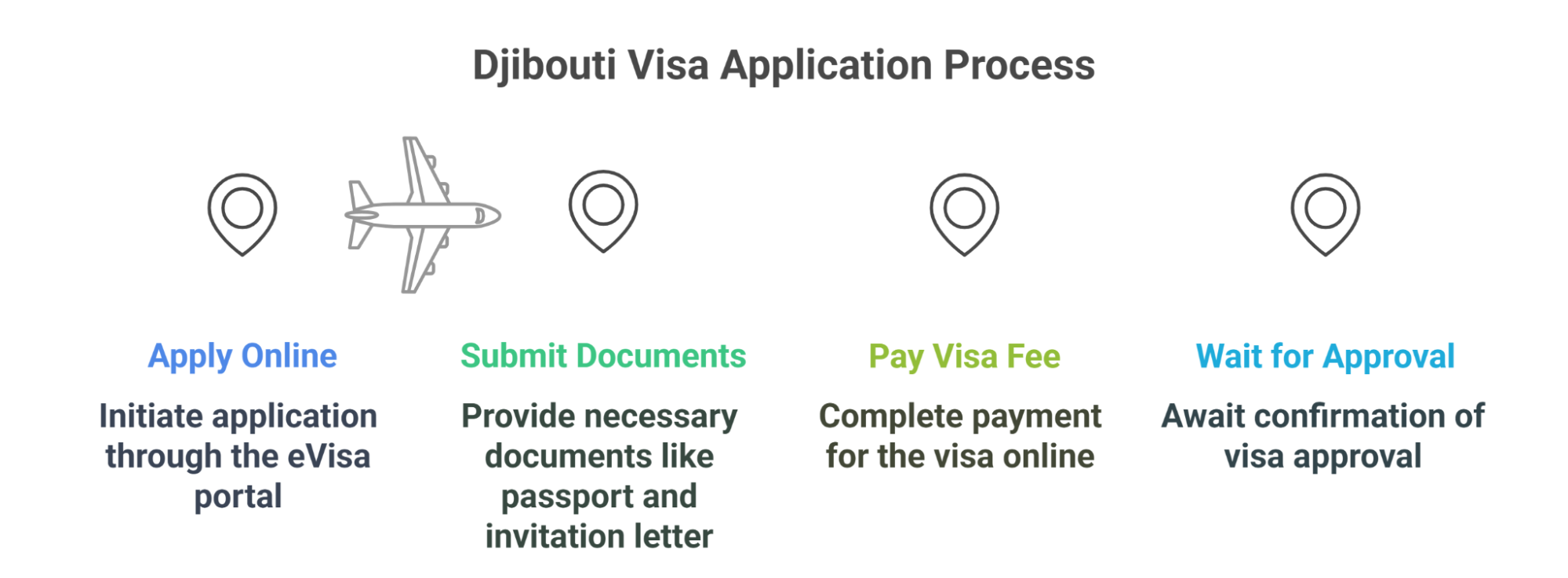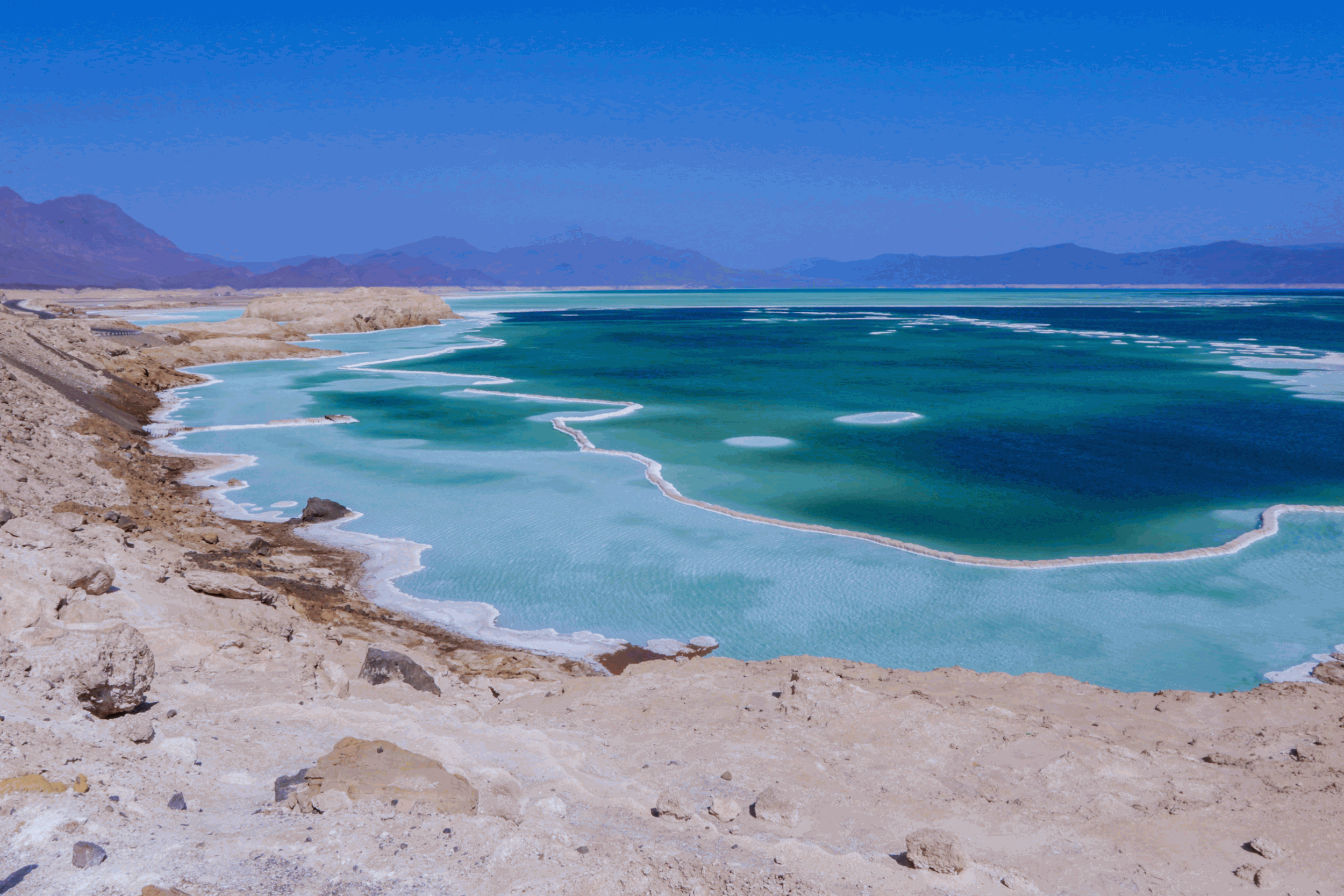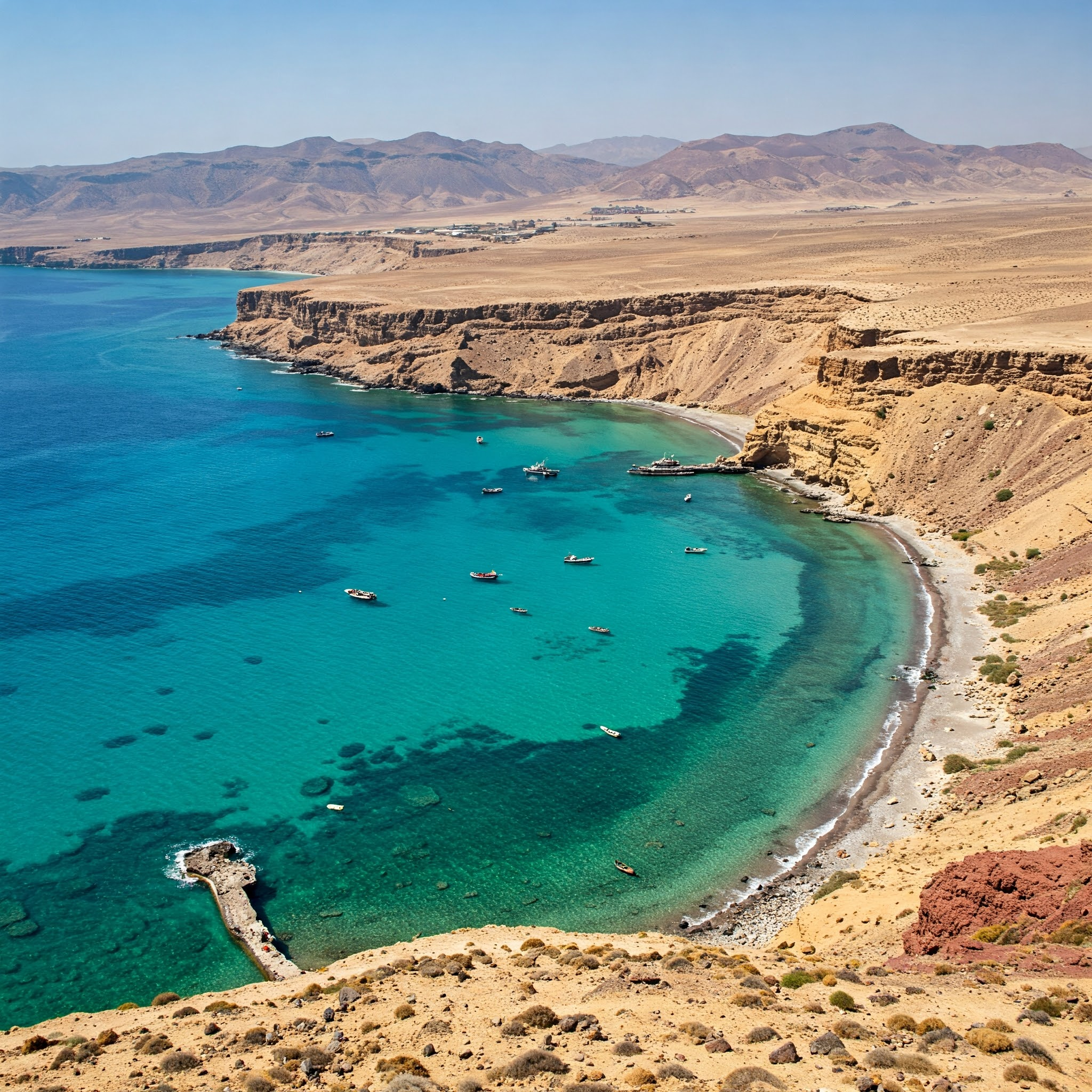
Djibouti, a small but strategically located country in the Horn of Africa, has become an attractive destination for foreign investment due to its geopolitical significance, stable political environment, and growing infrastructure projects. With its prime location at the entrance of the Red Sea, Djibouti serves as a gateway for international trade, connecting Africa, the Middle East, and Asia. The country has focused on attracting foreign direct investment (FDI) in key sectors such as logistics, energy, telecommunications, and financial services.
Djibouti offers business and investor visa options to attract foreign professionals, entrepreneurs, and investors looking to engage in commercial activities or establish businesses in the country. These Djibouti visas facilitate entry for short-term business visits or long-term investment stays.
The Djibouti Business eVisa is designed for foreign nationals visiting Djibouti for short-term business activities, including meetings, trade negotiations, and networking events.
|
Category |
Details |
|
Purpose |
For short-term business activities, including meetings, trade negotiations, and networking events. |
|
Validity & Duration |
Available as a single-entry, valid for 90 days. |
|
Eligibility |
Business travelers, entrepreneurs, investors, and company representatives. |
|
Processing Time |
Typically takes 3 to 5 business days. |
Application Process for Djibouti Business eVisa:
To apply for a Djibouti eVisa, complete the online application through the Djibouti eVisa Application Portal. Upload the required documents, including a valid passport, business invitation letter, and proof of accommodation. After submitting the application, pay the visa fee online and wait for approval, which is typically processed within a few days.

The Investor Visa is for foreign nationals planning to establish businesses, invest in key sectors, or participate in long-term commercial projects in Djibouti.
|
Category |
Details |
|
Purpose |
For foreign nationals looking to establish businesses, invest in key sectors, or engage in long-term commercial projects in Djibouti. |
|
Eligibility |
Entrepreneurs, investors, and business owners investing in sectors like ports, logistics, energy, telecommunications, and trade zones. |
|
Validity |
Typically one year, with renewal options. |
|
Processing Time |
Varies based on investment type but usually takes several weeks. |
Supporting Requirements for Djibouti Investor Visa include:

Business Expansion: Facilitates entry for foreign professionals looking to explore Djibouti’s growing economy.
Access to Free Trade Zones: Investors can benefit from Djibouti’s special economic zones offering tax exemptions and incentives.
Gateway to Africa: Djibouti’s strategic location makes it an attractive hub for trade and logistics.
Both visa options help foreign professionals and investors engage in Djibouti’s economic landscape, contributing to business growth and international partnerships.
Djibouti has adopted pro-business policies to attract foreign investors, including special economic zones (SEZs), tax incentives, and public-private partnerships (PPPs). The country has positioned itself as a regional logistics hub, benefiting from major infrastructure projects financed by foreign partners.
Djibouti’s strategic location along major global trade routes has made it a hotspot for foreign investment, particularly in infrastructure, logistics, and transportation. The government actively seeks international partnerships to modernize its economy and expand its role as a regional trade hub. Below are some of the key sectors drawing significant foreign investments:

Djibouti is home to some of the most modern ports in Africa, serving as a vital transit point for regional trade, particularly for landlocked Ethiopia, which relies on Djibouti for 90% of its imports and exports.
To enhance regional connectivity, foreign investments have been directed into railways and road networks.

Djibouti aims to become 100% reliant on renewable energy by 2035, making the energy sector a key focus for foreign investment.

With its position as a major submarine cable hub, Djibouti is attracting foreign investments in telecommunications and data services.

Djibouti is working to become a regional financial hub, encouraging foreign banks and financial institutions to set up operations.
Djibouti's unique natural attractions, such as its pristine beaches, volcanic landscapes, and marine biodiversity, offer significant potential for tourism development.
Key Attractions in Djibouti include:
Lake Assal
Lake Assal, located in Djibouti, is one of the saltiest lakes in the world and the lowest point in Africa at 155 meters below sea level. The lake’s high salinity exceeds that of the Dead Sea, making it almost impossible for marine life to thrive. Surrounded by volcanic landscapes and salt flats, it is an important site for salt mining. The lake’s striking turquoise waters contrast beautifully with the white salt crust, making it a breathtaking natural wonder.

Ghoubet Bay
Ghoubet Bay, also known as Ghoubet al-Kharab, is a deep coastal inlet of the Gulf of Tadjoura, renowned for its rich marine biodiversity. It is a popular spot for diving and snorkeling, offering encounters with whale sharks, colorful coral reefs, and diverse fish species. The bay is also linked to local legends, as it is believed to be home to mysterious sea creatures. With its dramatic underwater landscapes and strong currents, it is an exciting destination for adventure seekers and marine enthusiasts.

Day Forest National Park
Day Forest National Park is one of Djibouti’s few forested areas, providing a stark contrast to the country’s predominantly arid environment. Situated on Mount Goda, this high-altitude park is home to unique flora and fauna, including rare juniper trees, endemic bird species, and the elusive Djibouti francolin. The cool climate and lush greenery make it a haven for nature lovers and hikers looking to explore an oasis of biodiversity in an otherwise dry region.

Investors: International hotel chains and tour operators are exploring opportunities in Djibouti.
Opportunities: Development of eco-tourism, luxury resorts, and adventure tourism.
The growing population and increasing foreign investment have driven demand for real estate and construction projects.
Djibouti imposes restrictions on certain industries to safeguard national security, protect local businesses, and maintain control over critical resources. These restrictions significantly impact foreign investment, particularly in the telecommunications, transportation, and energy sectors.
Djibouti Telecom, a state-owned company, controls the telecom sector, restricting private competition. Foreign investors struggle to obtain licenses, limiting independent telecom operations. The government tightly controls communication infrastructure for security and data protection.
Djibouti’s ports are vital for East African trade, especially for Ethiopia. The government regulates port management and logistics to maintain its advantage. Foreign firms in port operations and railways face strict regulations, with the state ensuring control over ownership.
Djibouti is shifting to renewable energy but retains tight control over electricity production and distribution. Bureaucratic hurdles slow foreign investment in solar, wind, and geothermal projects. Regulatory uncertainty in pricing and subsidies adds to investment risks.
Understand Market Restrictions: Investors must navigate government policies carefully, particularly in state-controlled sectors.
✔ Explore Alternative Sectors: Industries like hospitality, tourism, and manufacturing offer fewer restrictions and greater investment opportunities.
✔ Seek Public-Private Partnerships: Collaborating with government-backed initiatives may improve access to restricted industries.
While these restrictions limit foreign engagement in Djibouti’s most critical sectors, strategic investment approaches can help businesses find viable opportunities in less regulated areas.
Despite its growth, Djibouti still faces several economic and regulatory challenges that hinder foreign investment.

Djibouti has a small domestic market (population of just over 1 million), making it heavily reliant on transit trade and foreign partnerships. Investors targeting local consumers face challenges due to low purchasing power and limited industrial activity.
Key industries, such as telecommunications, energy, and transport, are controlled by state-owned enterprises (SOEs), limiting competition. Djibouti Telecom, the sole provider of mobile and internet services, has discouraged private investment in the telecom sector.
Expensive electricity and utilities make operations costly for businesses. Bureaucratic delays and administrative inefficiencies hinder smooth investment processes.
The Djibouti government has faced legal disputes with foreign investors, such as the nationalization of the Doraleh Container Terminal, which led to international arbitration cases with DP World. Concerns over contract enforcement and judicial independence may discourage potential investors.

Djibouti remains an attractive investment destination, with opportunities for growth in infrastructure, trade, and digital transformation. However, to maximize its potential, the government must address key challenges and adopt pro-investment policies.
Liberalizing key industries such as telecommunications and energy to allow private-sector competition. Reducing state control over strategic sectors to attract more investors.
Strengthening legal protections for foreign investors to reduce risks of disputes. Enhancing contract enforcement mechanisms to build investor confidence.
Reducing reliance on port revenues by investing in manufacturing, tourism, and technology. Expanding value-added industries to create new investment opportunities.
Enhancing trade ties with Ethiopia, Kenya, and Gulf countries to create a stronger investment environment. Leveraging Djibouti’s membership in the African Continental Free Trade Area (AfCFTA) to attract multinational investors.
Ensuring debt sustainability by balancing infrastructure investments with revenue generation. Seeking public-private partnerships (PPPs) to reduce reliance on foreign loans.

Content Disclaimer: While this information was last updated in January 2026, we strongly suggest confirming all travel details with the appropriate governmental agencies, embassies, and airlines.
Step1: Complete the online application form with your personal details and passport information.
Step2: Proceed to securely pay online using your credit card.
Step3: Check your email for payment confirmation and receipt of your Djibouti eVisa, which will be sent electronically.